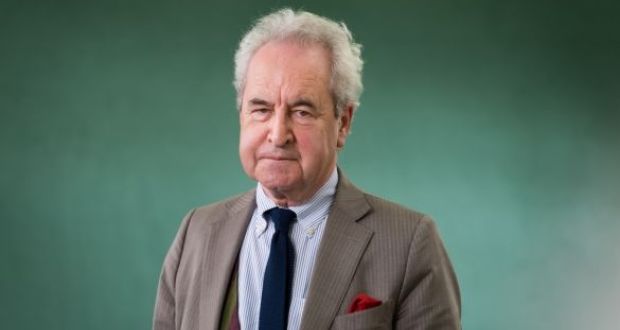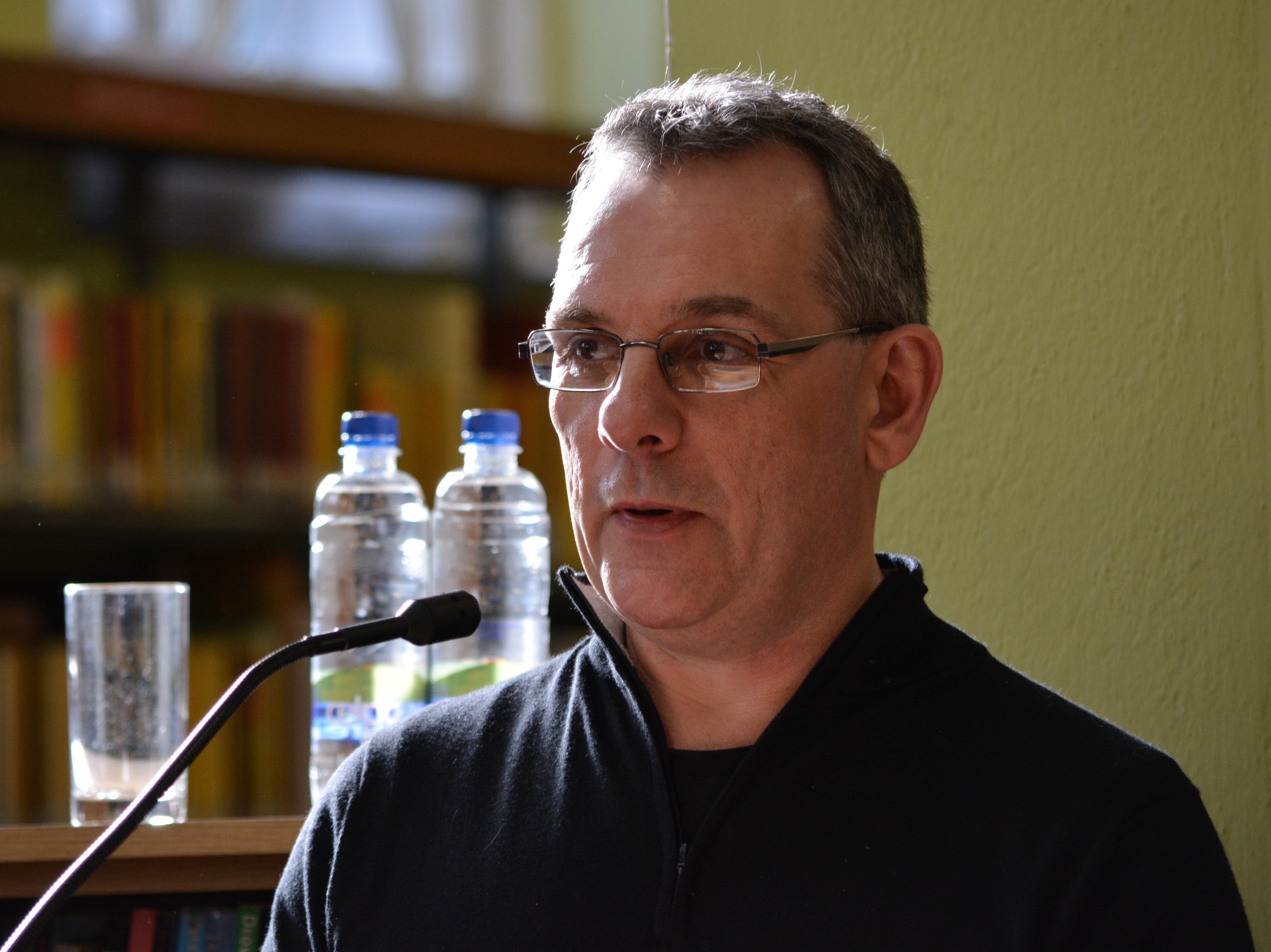
Coyau / Wikimedia Commons / CC BY-SA 3.
Catherine Kirwan is a crime writer. Her debut novel Darkest Truth, drawing its inspiration from her day job as a solicitor, was published to acclaim last year and was chosen as Cork’s One City One Book. Catherine was due to read on March 24 with John Banville as part of the Department of English annual reading series, one of many events that had to be cancelled due to the virus.
LIFE GIVES YOU LEMONS
For a while after, I used to walk to the Eurospar away up along, so as I wouldn’t have to go past. And then, says I, sure I’m not the one who should be ashamed. So I started going down the hill instead. I make sure to stare in at her when I’m passing, though, and when I see anyone I knew coming out or going in, I stop and tell them that I’ve taken my custom elsewhere, and that the bread is fresher in the place down below. I’m getting fit from all the walking, my waistband getting looser. When life gives you lemons, make lemonade, says I.
Until one night, a few weeks later, a knock came to the door. Late for anyone to be calling, says I, and I peeked sideways out through the net curtain on the landing window. When I saw who it was, I had the door open in five seconds flat.
He’s Dan to everyone else, Danny Boy to me. He calls in regularly and he has a terrible weakness for a Kit-Kat normally, but he refused one that evening so I should have guessed there was something wrong. We had the usual banter back and forth till he drew down about the incident, wondering how I was feeling.
‘I’m not letting it get to me,’ says I.
‘You’re dead right,’ says he.
‘But you remember me that day,’ says I. ‘In an awful state so I was.’
‘You were,’ says he. ‘Tis a thing to put behind you.’
‘That’s what I’m doing,’ says I.
‘I’d say the Adult Caution is the way to go, so.’
‘What’s that?’ says I.
‘It’s a system for people to avoid having to go through a prosecution when there’s no need. It’s just admitting that wrong was done, and then it all goes away, nice and quiet, like.’
‘Tell me a bit more,’ says I.
‘Not much more to tell,’ says he. ‘It’s a slap on the wrist, not even that…’
‘But she’d have to admit she was wrong,’ says I.
Not a word out of him then for a good while, though he started looking hot in himself, loosening the collar on his shirt. The blue of the uniform suits him so well, I was thinking, with the dark hair and the rosy cheeks on him, and if I was only a bit younger, and all that.
‘Em, Eleanor,’ says he. ‘You might have, maybe, taken me up wrong.’
I laughed, thinking he was joking. He wasn’t. He said that it was nothing to do with him, that it was the fecking Superintendent, that he, my Danny, was only the messenger boy. I wouldn’t hear of him running himself down like that.
‘You’ll be a sergeant in no time,’ says I. ‘Amn’t I always saying it?’
‘You are,’ says he.
‘And you know how fond I am of you,’ says I.
‘Well,’ says he. ‘We’ve had our moments. That time there was a complaint against you about the slashed tyres on the cars parked on your grass verge.’
‘Not a scrap of evidence,’ says I.
‘No. No. But there was that letter from the school that time you …’
‘Freedom of speech, Danny,’ says I.
‘And there was the keying,’ says he. ‘The alleged keying.’
‘Danny,’ says I. ‘I’d love to help you with the Superintendent but this is one favour I can’t do for you. Right is right.’
*
I’d be lying if I said I didn’t get a small bit of a hop when they came to serve me, not Danny, another guard. Two. One stayed in the car, and the other, a big brute with a Kerry accent, nearly took the door down with the hammering he gave it.
‘Summons for you, Mrs Kelly,’ says he.
‘It’s Miss,’ says I, and I slammed the door in his face and crumpled the paper into a ball and threw it into the recycling. I went up to bed for a while, but I was twisting and turning, and then the children out on the green started their usual roaring, so I got up and made myself a cup of tea and I went out to the back garden and sat on Mammy’s bench, under the apple tree.
What would Mammy do, says I to myself. Well she wouldn’t run away from a fight anyway, says I, and I got up on my hind legs and went back into the house and I dug the summons out of the recycling bin and I flattened it, and read: ‘Assault causing harm contrary to section 3 of the Non-Fatal Offences Against the Person Act 1997’.
*
The next time Danny called, I said it straight out.
‘Your Kit-Kat days are over in this house.’
‘I suppose because of the summons,’ says he.
‘You suppose right,’ says I.
‘Ah, now, sure,’ says he. ‘The black eye would have been hard to ignore.’
‘It’s not what you know, Danny,’ says I. ‘It’s who. Mammy always said it.’
‘Eleanor,’ says Danny. ‘In my training for the community guard role we were taught about the Two Cs. Contrition and compensation. I could nearly guarantee that, even at this late stage, the complaint would be dropped if you would pay a token amount to show …’
‘Get out,’ says I.
*
I’m wearing the suit I had for Mammy’s funeral and I’ve a taxi ordered for afterwards.
It isn’t every day of the week that justice is done.
Catherine Kirwan
TOMORROW: “Underneath” by John Banville




